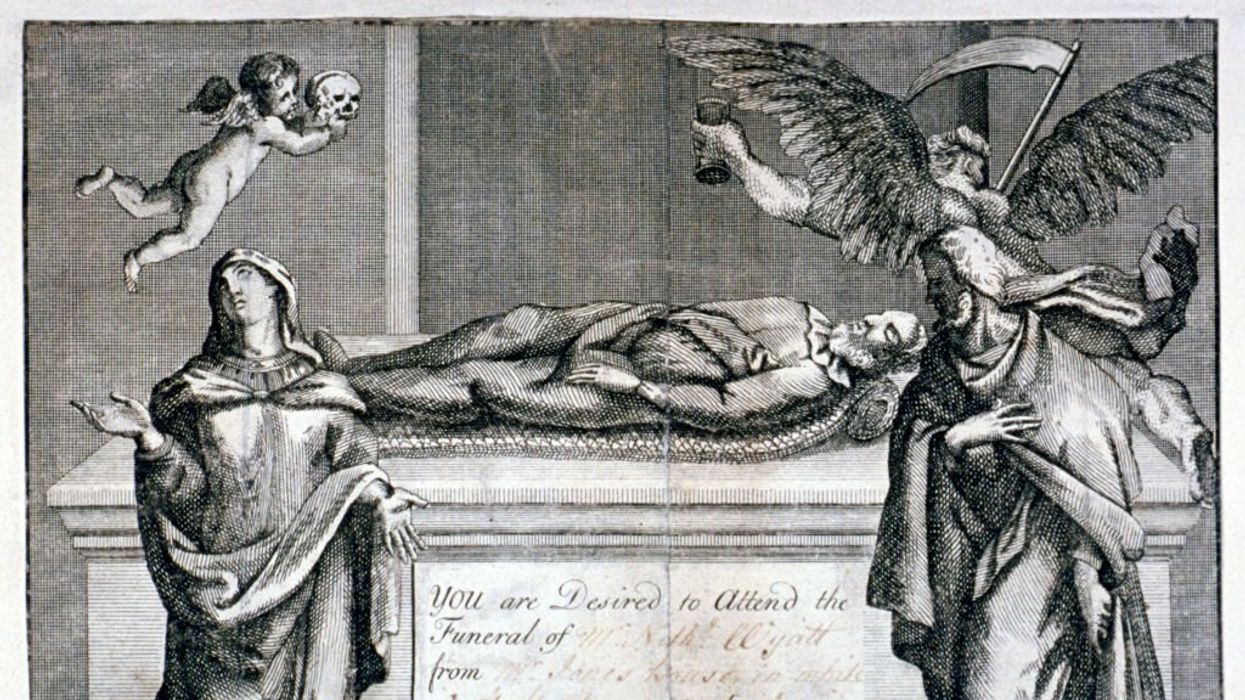
Getty Images/Heritage Images
A relative's funeral becomes an opportunity to understand why quiet joy can accompany painful loss.
My husband’s Aunt Judy passed away last week, in the early morning hours of Good Friday, the same hours I imagine Christ would have been praying in the Garden of Gethsemane.
It was fitting. Judy was a faithful Army veteran who had undergone her own passion over the past few years, beginning with a house fire that covered her (already disabled) body with third-degree burns. A profound sense of peace filled the church during her funeral mass, which was punctuated by the cries of joy and hunger emanating from thirteen grand-nieces and -nephews.
My daughter's questions were straightforward but far from simple: Why did she die? When is she going to be alive again? Can she talk? Does she have boo-boos?
I heard recently that some parents refuse to bring their young children to wakes or funerals for fear of “traumatizing” them with the sight of death. Its just as likely that these parents seek to spare themselves distress: Questions about life's end can be as awkward as questions about its beginning.
Putting off the truth has its risks. After all, the most inquisitive young minds are bound to find the answers they seek somewhere. Christian parents know all too well how unreliable these other sources can be.
I think we have a duty to educate our children about first and final things before the world has a chance to blind them with shame, detraction, or denial. This requires, of course, that we ourselves see in birth and death more than just raw material or mechanics. Death is more than when your heart stops beating, though it is that. Birth is more than insemination, gestation, and labor, though it is that, too.
Without prompting, my eldest (age 3) was curious about the mechanics and metaphysics of Judy’s death, and her straightforward yet far-from-simple questions rarely fit so neatly in one box or another. Why did she die? When is she going to be alive again? Can she talk? Does she have boo-boos?
We offered straightforward answers and tried to account for whatever complexity she could understand. My husband and I explained that Judy died because her heart stopped working, but we also framed her death as the temporary separation of her body and soul. This took us on an extended detour about angels and why they don’t have bodies. She seemed enraptured, despite any meandering.
Death is not a bad thing, we told her, even if it makes us sad. Everyone dies, but we don’t fear death, because it means we are one step closer to meeting our Maker, whom we love. More importantly, He loves us.
Toward the end, she wondered what colors were in heaven. All of her favorites, I said, plus some we’ve never seen before.
- YouTubeyoutu.be